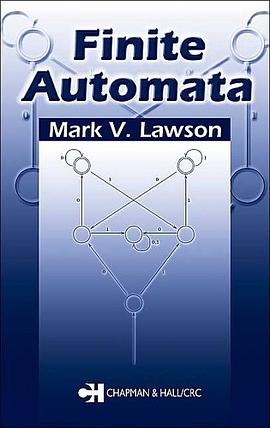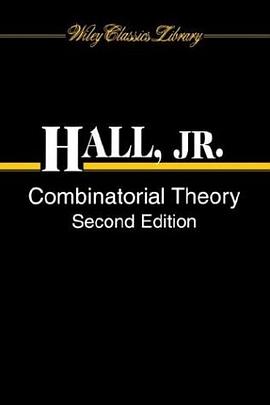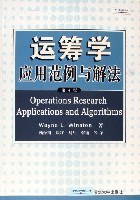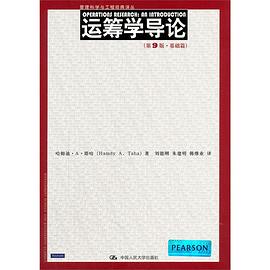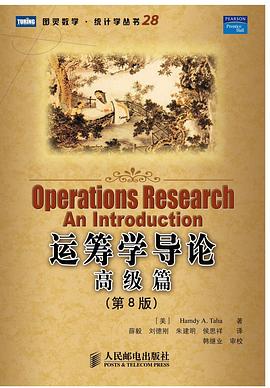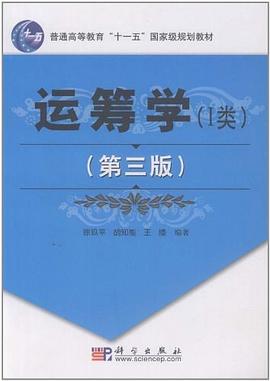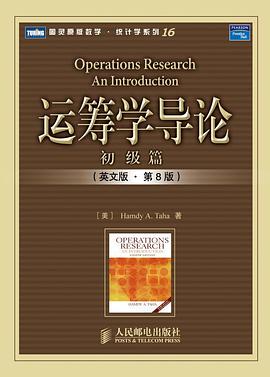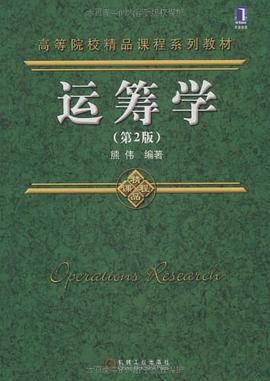

具体描述
“The economy [isn’t] a bunch of rather dull statistics with names like GDP (gross domestic product),” notes Tim Harford, columnist and regular guest on NPR’s Marketplace, “economics is about who gets what and why.” In this acclaimed and riveting book–part exposé, part user’s manual–the astute and entertaining columnist from the Financial Times demystifies the ways in which money works in the world. From why the coffee in your cup costs so much to why efficiency is not necessarily the answer to ensuring a fair society, from improving health care to curing crosstown traffic–all the dirty little secrets of dollars and cents are delightfully revealed by The Undercover Economist .
“A rare specimen: a book on economics that will enthrall its readers . . . It brings the power of economics to life.”
–Steven D. Levitt, coauthor of Freakonomics
“A playful guide to the economics of everyday life, and as such is something of an elder sibling to Steven Levitt’s wild child, the hugely successful Freakonomics.”
– The Economist
“A tour de force . . . If you need to be convinced of the everrelevant and fascinating nature of economics, read this insightful and witty book.”
–Jagdish Bhagwati, author of In Defense of Globalization
“This is a book to savor.”
– The New York Times
“Harford writes like a dream. From his book I found out why there’s a Starbucks on every corner [and] how not to get duped in an auction. Reading The Undercover Economist is like spending an ordinary day wearing X-ray goggles.”
–David Bodanis, author of Electric Universe
“Much wit and wisdom.”
–The Houston Chronicle
From Publishers Weekly
Nattily packaged-the cover sports a Roy Lichtensteinesque image of an economist in Dick Tracy garb-and cleverly written, this book applies basic economic theory to such modern phenomena as Starbucks' pricing system and Microsoft's stock values. While the concepts explored are those encountered in Microeconomics 101, Harford gracefully explains abstruse ideas like pricing along the demand curve and game theory using real world examples without relying on graphs or jargon. The book addresses free market economic theory, but Harford is not a complete apologist for capitalism; he shows how companies from Amazon.com to Whole Foods to Starbucks have gouged consumers through guerrilla pricing techniques and explains the high rents in London (it has more to do with agriculture than one might think). Harford comes down soft on Chinese sweatshops, acknowledging "conditions in factories are terrible," but "sweatshops are better than the horrors that came before them, and a step on the road to something better." Perhaps, but Harford doesn't question whether communism or a capitalist-style industrial revolution are the only two choices available in modern economies. That aside, the book is unequaled in its accessibility and ability to show how free market economic forces affect readers' day-to-day.
Copyright © Reed Business Information, a division of Reed Elsevier Inc. All rights reserved.
From Bookmarks Magazine
Harford exposes the dark underbelly of capitalism in Undercover Economist . Compared with Steven Levitt’s and Stephen J. Dubner’s popular Freakonomics (*** July/Aug 2005), the book uses simple, playful examples (written in plain English) to elucidate complex economic theories. Critics agree that the book will grip readers interested in understanding free-market forces but disagree about Harford’s approach. Some thought the author mastered the small ideas while keeping in sight the larger context of globalization; others faulted Harford for failing to criticize certain economic theories and to ground his arguments in political, organizational structures. Either way, his case studies—some entertaining, others indicative of times to come—will make you think twice about that cup of coffee.
Copyright © 2004 Phillips & Nelson Media, Inc.
作者简介
蒂姆·哈福德:《金融时报》“亲爱的经济学家”的专栏作家。在这个专栏中,他用最新的经济理论,为好奇心十足的读者提供轻松诙谐、深入浅出的答案。他同时还在世界银行工作,担任国际金融公司首席经济学家的主笔。之前,哈福德不但做过《金融时报》的经济学社评作家,还曾担任一家大型石油公司的经济学家、牛津大学的经济学教授。他现居华盛顿。可以从http://www.timharford.com/deareconomist/上阅读到哈福德的精彩评论。
目录信息
读后感
一个同学在聊天时说,要是能找到一个年薪60万的工作就舒服了,上海这样的职位应该有很多。我知道有些难,因为和他能力相差不多的人比相应的职位要多很多。本书的作者首先就讲到稀缺产生力量,没有空气和水就会死亡,因为空气和水不稀缺,不仅便宜而且可以污染;去年的地价上涨...
评分想写点什么评价的 不然是不是对不起这么一本好书 但是发现都被前面的人写过了…… 一本像小说一样的经济学 用非常轻松的心情读完了发现好像没有一句废话(非常难得了)用简单的办法来阐述深刻的道理 这就完全够得上好书了
评分 评分阔别它的姊妹篇《魔鬼经济学》一个月之后,开始看这本,原以为习惯此般出人意料的结果,却还是大吃一惊。 前九章各有重点,仍然围绕着市场体系里面,提出买卖市场失灵的问题,分别是稀缺力量,外部效应,不完全信息,还有公平问题。从地铁站的咖啡,到超市的不同货物的定价,到...
评分物以稀为贵 现在以经济学的名义,就是稀缺 我的理解:也是一个护城河 也就是核心竞争力 同一杯咖啡 因为地点,环境有不同的价格 这个咖啡的成本,与咖啡的本身关联已不是很大 很大的部分是房租、人工、装修还有投入利润 因为咖啡的产地,产能与种咖啡的技术最没有门槛 在一杯...
用户评价
这本书的广度令人惊叹,但更让我印象深刻的是其对细节的打磨。它不是那种泛泛而谈的“大而空”的作品,相反,它对特定领域和特定历史事件的剖析,展现出了极高的专业水准和批判精神。我注意到,作者在讨论国际贸易摩擦时,并没有简单地归咎于政治对抗,而是深入挖掘了全球供应链的脆弱性、比较优势的动态漂移,以及各国政府在信息获取和政策协调上的系统性障碍。这种细致入微的解构,使得原本看似僵硬的经济学概念变得富有生命力和情境感。比如,书中对“黑市”的描述,不仅仅是将其定义为非法交易场所,而是将其视为市场在僵硬管制下寻求出路的自然反应,这种对人性与制度互动的理解,超越了许多教科书的刻板印象。阅读这本书的过程,就像是在跟随一位经验丰富的导游,穿梭于过去与现在、理论与实践之间,每到一个重要的拐点,导游都会停下来,用最清晰的地图为你标示出经济力量的流向。它不仅回答了“是什么”,更重要的是,它深入探讨了“为什么会变成这样”,并且对“未来可能如何演变”提供了审慎的预测框架。
评分这本新近读完的书,着实让人耳目一新。它不像那些枯燥的教科书,堆砌着晦涩难懂的理论模型,而是像一位技艺精湛的魔术师,将那些我们习以为常、却从未深究的日常现象,用经济学的透镜一一拆解,展现出令人拍案叫绝的内在逻辑。作者似乎有一种天赋,能将复杂的市场机制、价格波动、甚至政府监管背后的驱动力,用最生活化的例子串联起来。比如,书中对“为什么某些商品总是那么难抢到手”的分析,就不仅仅停留在供需平衡的表面,而是深入探讨了信息不对称和行为经济学在排队和配给中的微妙作用。我特别欣赏它叙事上的灵活性,一会儿是深入街头巷尾的田野调查,一会儿又是对宏观政策的精准剖析,这种游刃有余的切换,使得阅读过程充满了探索的乐趣。它成功地做到了让一个经济学门外汉也能轻松跟上节奏,同时又不失对专业人士的吸引力,因为它挖掘的那些“为什么”,往往是我们在日常生活中忽略掉的经济学的骨架。这本书与其说是一本经济学读物,不如说是一本教人如何更聪明地观察世界的工具书,读完之后,你再去看超市的货架布局、听到关于税率调整的新闻,都会下意识地多想一层,这种思维上的拓展,价值无可估量。
评分老实说,我原本对这类试图“平民化”经济学的作品抱持着一种审慎的态度,总担心它们为了追求易读性而牺牲了论证的严谨性。然而,这本书彻底颠覆了我的固有印象。它在保持学术深度的同时,那种娓娓道来的叙事风格,简直像极了一位经验丰富的老教授,在昏黄的灯光下,为你解析那些看似简单的社会现象背后的“看不见的手”。书中对竞争与垄断的探讨,尤其精彩,它没有停留在传统经济学中对市场失灵的批判,而是巧妙地引入了创新者的困境,以及技术迭代如何不断重塑市场边界的动态过程。我特别记住了关于“稀缺性”的那一章,作者没有用抽象的定义来搪塞,而是通过一系列跨越时代的案例——从古代的食盐专卖到现代的互联网流量分配——生动地揭示了稀缺性是如何驱动人类社会组织结构和道德规范的演变。这本书的结构安排非常巧妙,逻辑链条层层递进,从微观的个体选择,逐步过渡到宏观的全球贸易格局,每一步都走得坚定而有力,绝无半点拖泥带水。它不是在“教”你经济学知识,而是在“训练”你的经济学思维,让你学会用成本效益分析的框架去看待每一个决策,无论是国家层面的财政支出,还是个人选择的职业发展。
评分这本书的笔触是如此的犀利而幽默,读起来有一种酣畅淋漓的快感,简直让人停不下来。如果说其他经济学普及读物像是一道精心摆盘的法式大餐,需要你细嚼慢咽,那么这本书更像是一场热火朝天的街头烧烤,味道浓烈,烟火气十足,直击人心。它最成功的一点,是它敢于挑战那些被奉为圭臬的经济学“常识”。比如,书中对“最低工资”的论述,它没有采取一边倒的立场,而是用详实的数据和多维度的案例,展示了这项政策在不同经济体和不同行业中所产生的复杂反馈效应,让人不得不重新审视自己过去基于片面信息形成的判断。我尤其欣赏作者对“激励机制”的深刻洞察,他描绘了一个世界:人们的行为往往不是由他们的“本意”驱动,而是由他们所处的奖惩系统决定的。这种洞察力,让书中的分析充满了现实的张力。阅读过程中,我常常会因为某个论点而被逗乐,随即又被另一个论点的深刻性所震撼。它用一种近乎侦探小说的节奏,引导读者去解开那些隐藏在日常交易背后的经济谜团,让人在享受阅读乐趣的同时,不知不觉中完成了对复杂世界的认知升级。
评分我总觉得,一本伟大的非虚构作品,应该能改变你观察世界的基本滤镜,而这本新书恰恰做到了这一点。它没有宏大的口号,没有煽情的宣言,所有的力量都蕴含在严谨的数据和无可辩驳的逻辑推演之中。它教会我的最重要一课,是认识到经济学思维的本质,在于理解权衡(trade-offs)。无论是消费者在预算约束下的最优选择,还是国家在通货膨胀与失业率之间的两难抉择,核心都在于资源的有限性。作者通过对比不同文化背景下对“公平”和“效率”的不同侧重,清晰地展现了这种权衡在不同社会制度中的具体体现。这本书的语言风格非常沉稳,带着一种经过时间检验的智慧,不急不躁,但每句话都掷地有声。它像是一把精密的瑞士军刀,为你提供了分析几乎所有社会经济问题的基础工具。读完之后,我发现自己看待那些“突发新闻”的视角都变得更为冷静和结构化了,不再容易被情绪化的报道所裹挟,而是开始主动寻找背后的经济驱动力。这是一次非常值得的知识投资。
评分Economics is about who gets what and why, but moreover, economics is about people, something that economists have done a very bad job at explaining. And economic growth is about a better life for individuals, more choices, less fear, less toil and hardship.
评分Economics is about who gets what and why, but moreover, economics is about people, something that economists have done a very bad job at explaining. And economic growth is about a better life for individuals, more choices, less fear, less toil and hardship.
评分Very very entry level but quite interesting still
评分Very very entry level but quite interesting still
评分Very very entry level but quite interesting still
相关图书
本站所有内容均为互联网搜索引擎提供的公开搜索信息,本站不存储任何数据与内容,任何内容与数据均与本站无关,如有需要请联系相关搜索引擎包括但不限于百度,google,bing,sogou 等
© 2026 book.quotespace.org All Rights Reserved. 小美书屋 版权所有





